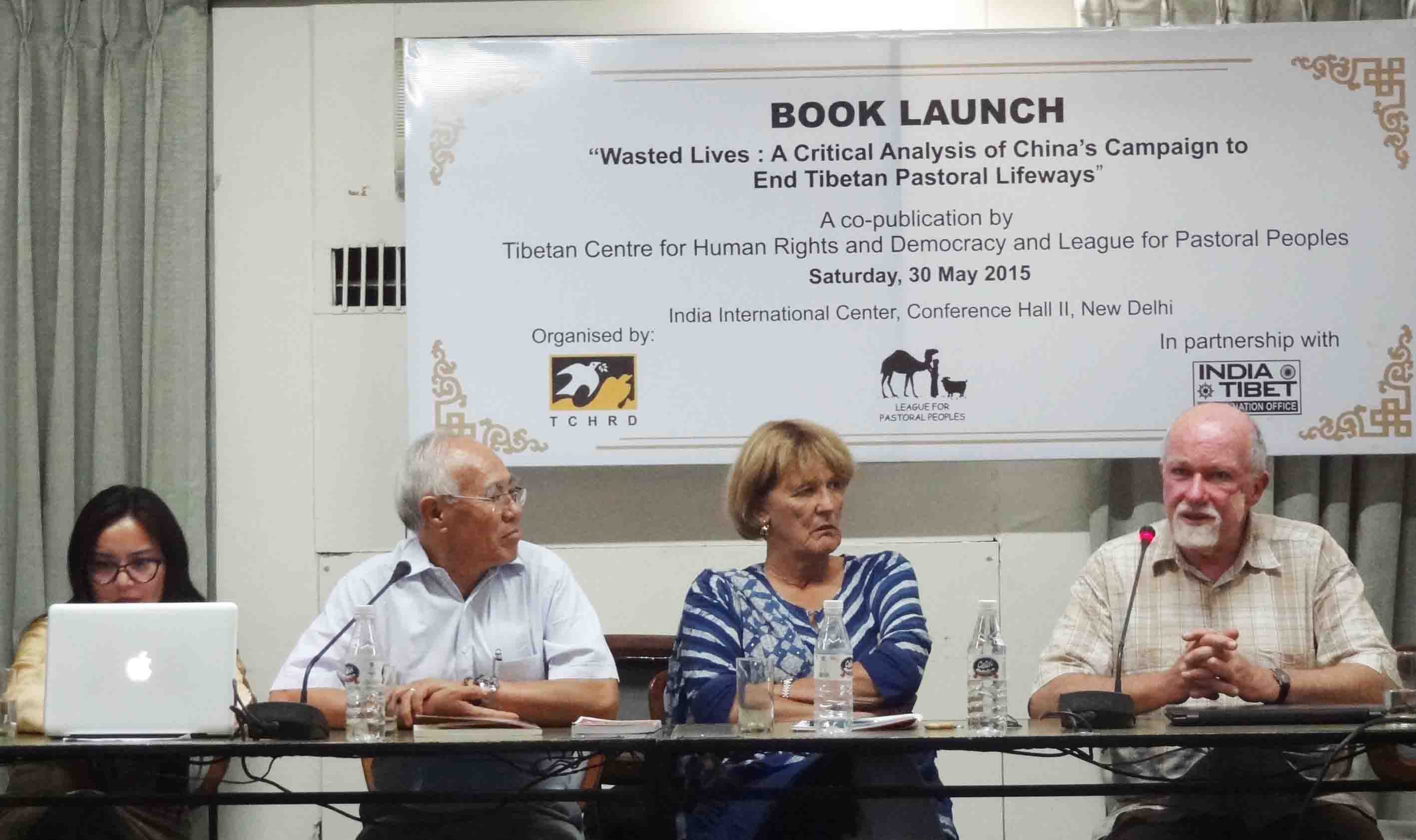
(TibetanReview.net, Jun01, 2015) – Tibetan nomads are caught in an ongoing tension between productivism and conservation, both of which impose costs on them, reduce their options, and induce their slide into poverty, said grassland environmentalist Mr Gabriel Lafitte May 30, speaking at the India International Centre, New Delhi, during the launch of a new report on the state-enforced disappearing nomadic life in Tibet.
Wasted Lives: A Critical Analysis of China’s Campaign to End Tibetan Pastoralist Lifeways has been co-published by Tibetan Centre for Human Rights and Democracy (TCHRD) and the League of Pastoral Peoples (LPP). The report is intended as a call on China to reconsider its current “close pasture to grow more grass” policy which is removing productive pastoralists from the production landscapes of Tibet.
The keynote speaker, Ms Ilse Kohler-Rollefson of the League of Pastoral People, said herders were keepers of indigenous knowledge, people who preserve the genetic diversity the world may well need in a time of accelerating climate change.
Mr Lafitte, the report’s author, said China had failed to understand its grassland and had made successive policy mistakes over the decades, culminating in the current crisis of degradation. He said Tibet was now losing its food security, with its pastoralists being made welfare-dependants. He added that they now lead meaningless lives, with no entry into modern income source.
Mr Tempa Tsering, the Dalai Lama’s New Delhi Representative, pointed out that nomadic lifestyle was being practiced not only in Tibet but also in the Himalayan belt and its practices were part of an ancient civilization. The extinction of nomadic lifestyle is a threat to the environment and mountain ecology. He thanked the author for bringing out an important book which will help in the study of environment.
The release function was organised by the Tibetan Centre of Human Rights and Democracy, Dharamshala, with the assistance of New Delhi-based India-Tibet Coordination Office.


